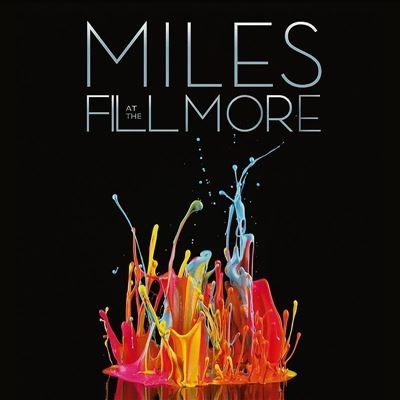エレクトリック・マイルス期にチック・コリア、キース・ジャレット、スティーヴ・グロスマン、デイヴ・ホランド、ジャック・ディジョネット、アイアート・モレイラと共に出演した1970年6月17~20日ロックの殿堂フィルモア・イーストでの名ライヴ盤の音源に、ブートのみで出回っていた1970年4月11日フィルモア・ウエストに出演した際の音源を加えた歴史的パフォーマンスを収めたブートレグ・シリーズ第3弾が待望のLP化。カルロス・サンタナがキュレーションし、マイルス自身もインタビューで「全音公開したい」と言うほど興奮した伝説のパフォーマンスが6枚組ボックスセット、インナースリーブ、貴重写真とライナーノーツを掲載した12ページのブックレット付属の豪華仕様で登場。
発売・販売元 提供資料(2024/08/09)
Until now, the official recordings of Miles Davis' performances at the Fillmore East between June 17 and 20, 1970 have been limited to the double album Miles at the Fillmore. That set's producer Teo Macero, edited the recordings to create medleys of each night's music to four roughly 20-minute selections. This four-disc set contains all four concerts. There are 100 minutes of previously unreleased music from Wednesday through Saturday; an additional 35 minutes of unreleased music comes from a previous gig at the Fillmore West. On the FE shows,Davis' band opened for Laura Nyro. Bill Graham regularly booked jazz artists to play with rock and pop acts. At the time, Davis was actively courting the younger audience -- aided not only by Graham, but by FM DJs playing the just-released Bitches Brew. The band -- saxophonist Steve Grossman, Dave Holland on electric bass, drummer Jack DeJohnette, percussionist Airto Moreira, Chick Corea on electric piano, and Keith Jarrett on organ -- was loud and driving, its sound was drenched in wah-wah pedals; distortion was employed often. These dates are also historically significant because both keyboardists played in the group simultaneously for only three months. The program for each evening was basically the same: "Directions," "The Mask," "It's About That Time," "Bitches Brew," and "The Theme." But each disc offers a different bonus: an encore, an unexpected performance, or the added tracks from the Fillmore West gig. The charts are loose but focused, and the group's improvisational dynamic is breathtaking, entirely different each night. Davis is exceptionally strong. His playing is inventive, full of questions and muscular statements. Some notable solos occur on Wednesday's "It's About That Time," the Fillmore West's "Footprints" and "Paraphernalia," and the searing intensity displayed on "Directions," from Friday. Grossman's soprano playing is stunning on each version of "Bitches Brew"; his bluesy tenor playing is at its best on Thursday's "Spanish Key." Individually and collectively, DeJohnette and Holland add an extreme funkiness to the band's bottom. Their interplay is canny, full of nasty grooves -- check Thursday's "The Mask," or the throbbing pulse and roiling breaks on Friday's "Directions." Jarrett's colors, textures and stabs, add an entirely different dimension to the band's attack. Check the sinister vamping and spooky soloing on "Miles Runs the Voodoo Down" from the Fillmore West. Corea is alternately knotty and atmospheric. He can push the horns hard --as on Thursday's "Directions" -- or paint through Jarrett's wah-wah organ with an expressionist brush -- evidenced by Saturday's "Willie Nelson." Throughout his solos are risky and exploratory. Airto's vocal and percussion arsenal is wildly different, not only from tune to tune, but night to night. The sound on this box is fantastic: balanced and detailed. The set includes a 28-page booklet with an essay by Michael Cuscuna and producer's notes with Richard Seidel, along with rare photographs and a poster. Miles at the Fillmore - Miles Davis 1970: The Bootleg Series, Vol. 3 is an essential addition to the Davis canon. ~ Thom Jurek
Rovi



